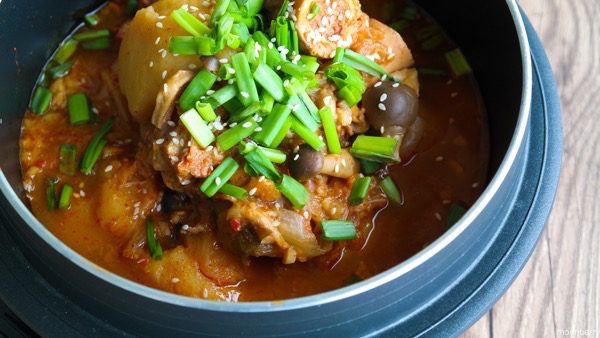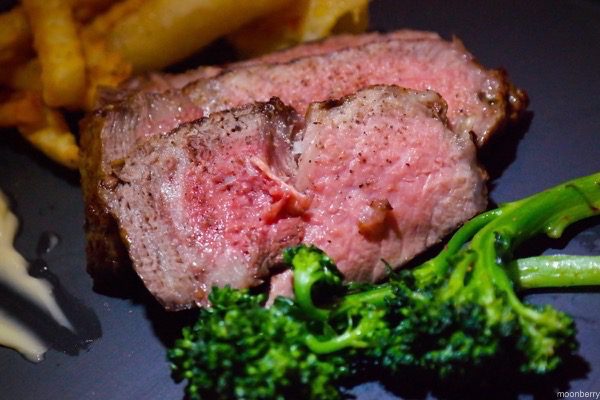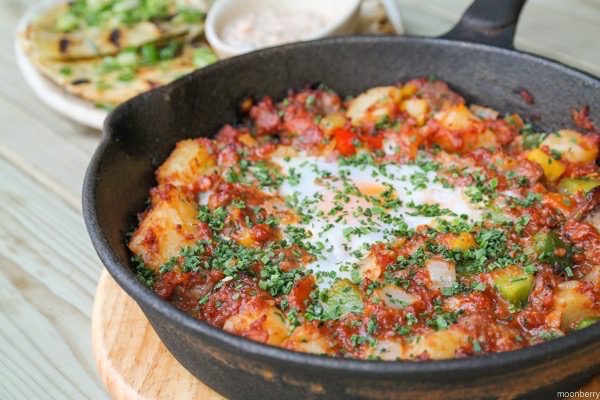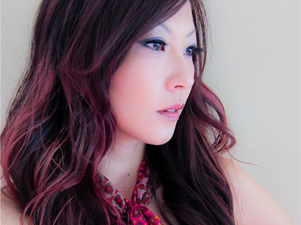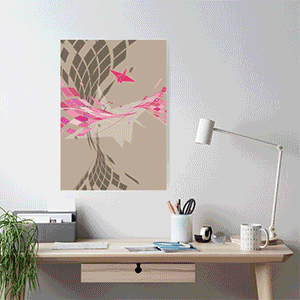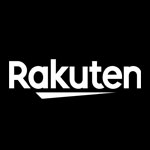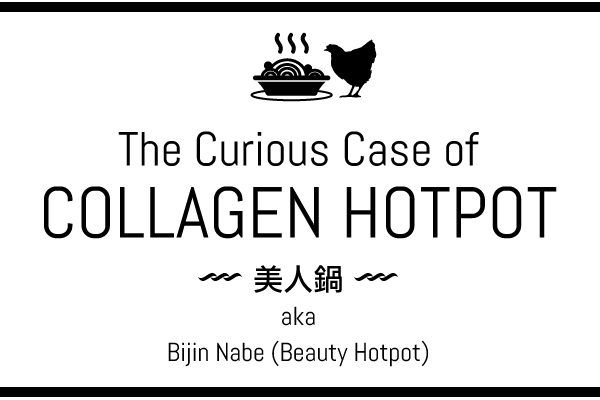
I’ve been hearing about Collagen Hotpot (aka beauty hotpot) for more than a year now and seriously dying to try. In a nutshell we know that collagen is a protein made up of amino acids and found in the human body. Collagen fibers support body tissues and a major component of the extracellular matrix that supports cells. Collagen and keratin give the skin its strength, waterproofing, and elasticity. However, as we grow older and age, collagen production slows and elastin, the substance that enables skin to snap back into place, has a bit less spring. That pretty much explains how skin sags and we get wrinkles (gwa gwa gwa~). Therefore if we care about slowing down and reversing skin aging, we should care about collagen too.
The practice of ingesting collagen to fight the effects of aging has been going on in the homes of Japan for years, but has only recently become a mainstream practice. The craze over skin-smoothing collagen has spread to “bijin nabe” ie. beauty hotpots, with restaurants serving up collagen in the broth. Finally collagen hotpot has arrived to Singapore and I went to two restaurants that serve them: Tsukada Nojo and Shirokiya. Does collagen hotpot live up to the hype? Let’s find out.
Tsukada Nojo
Plaza Singapura #03-81
68 Orchard Road
Singapore 238839
Tel: (+65) 9129-0244
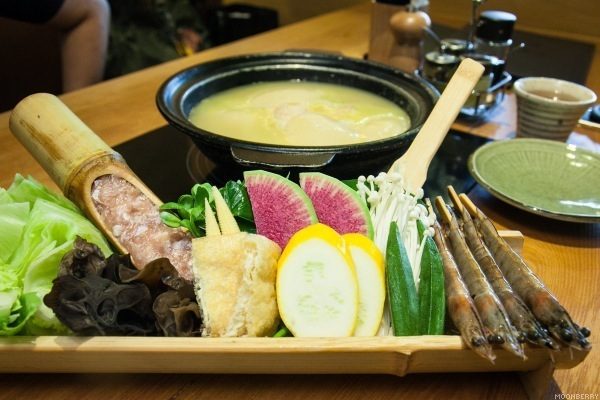
The main attraction here is, of course, the Bijin Nabe collagen hotpot. Made from Jidori bones (Jidori chicken grown in Tsukada Nojo’s own chicken farm), salt and water, the Golden Jidori Soup is allowed to boil for more than 8 hours and then cooled to become a super rich collagen pudding. In a heated pot, wait for the collagen pudding to melt fully to become broth and then start dunking items from the set. At S$25.00/person, a full set contains chicken (grown in Tsukada Nojo’s own chicken farm), tsukune – ground chicken mixed with a bit of tapioca starch to form a paste, which will then be shaped into meatballs right before plunging them into the boiling broth, prawns, deep fried tofu, assorted mushrooms and organic vegetables including sprouts and watermelon daikon radish (the latter’s directly imported from Japan). Three choices of noodles accompany the collagen hotpot set: thin egg noodle, thick mochi-mochi noodle and rice noodle.
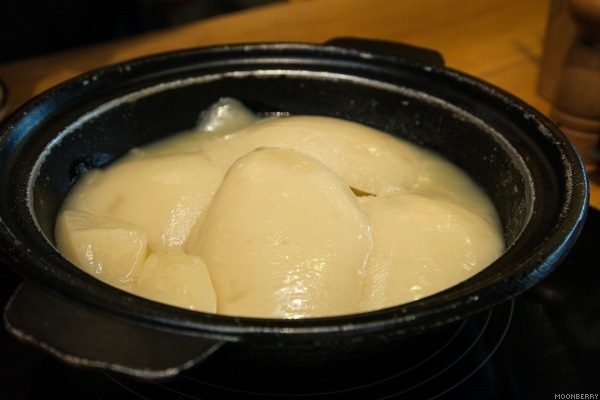
The pot of collagen that promises smooth beautiful skin.
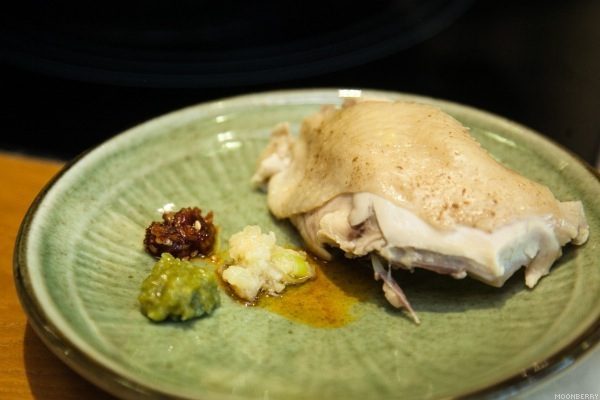
Condiments: Red Chile Oil, Yuzu Pepper and Negi Ginger Oil.
Actual chicken, cut up into parts with bone and skin intact, is in the collagen pudding when the pot first arrives to the table. Once the pudding melts into a liquid broth, you can either leave the chicken in the pot or take it out and eat. The chicken looked beautiful, but I found it to be way too rubbery and nearly inedible. I’m not sure what was going on here.
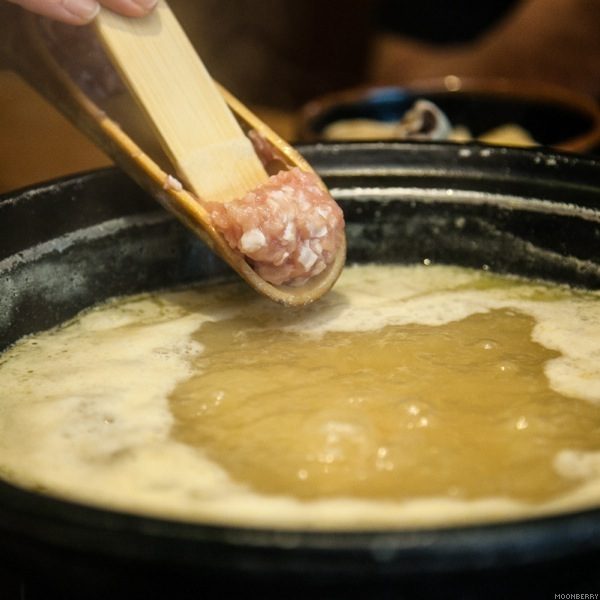
Once the broth begins to boil, the tsukune (ground chicken mixed with a bit of tapioca paste) is formed into meatballs and dunked into the pot. This was very delicious and I enjoyed both the flavor and texture.
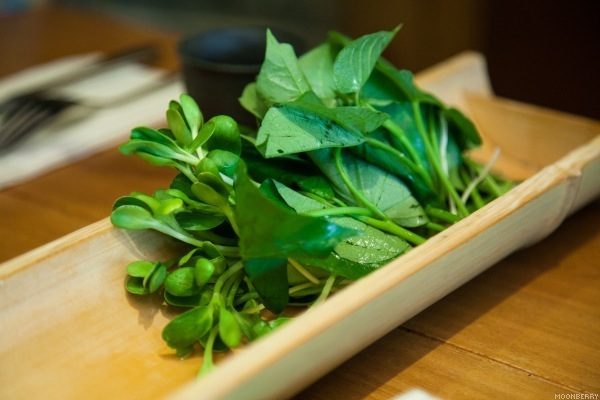
Organic sprouts include baby sweet potato leaves and sunflower sprout, which I happen to love tremendously. It’s like a crunchier, larger version of regular pea sprouts.
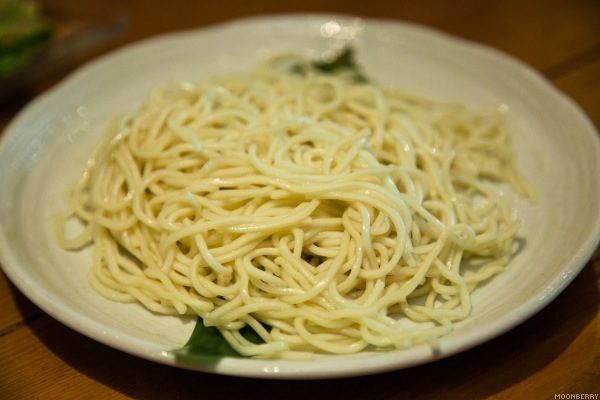
Thick mochi-mochi noodle. Typically in Japanese-style hotpot, the carb goes into the broth last. Be careful not to overcook this as it can turn soggy very quickly. The texture of this mochi-mochi noodle was nice and bouncy.
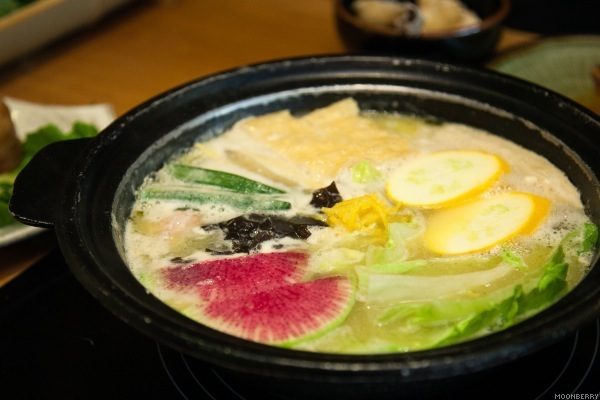
Yuzu peel is added into the collagen hotpot after all the vegetables are swimming happily. Special mention here on the watermelon daikon which is a gorgeous-looking Japanese radish resembling a watermelon with its vibrant red center and green rim; it is very lovely to eat – tastes earthy with a mild sweetness.
Other dishes at Tsukada Nojo:
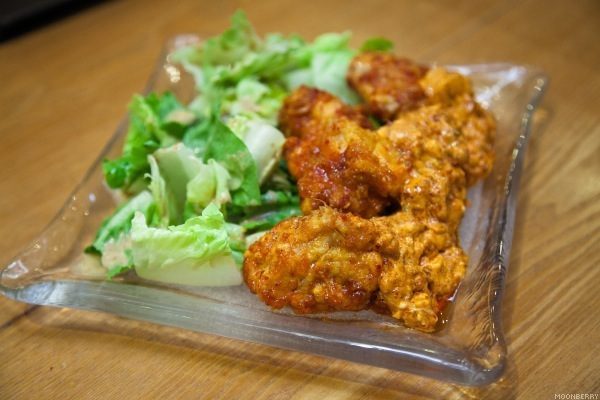
Chicken Nanban (S$8.50/plate) is a traditional chicken dish in Miyazaki and served with homemade tartar sauce (original or spicy hot, exclusive to Singapore). Here, I ordered the version with spicy hot tartar sauce. When the dish arrived though, I found the sauce to be way too generous and it overpowered the chicken.
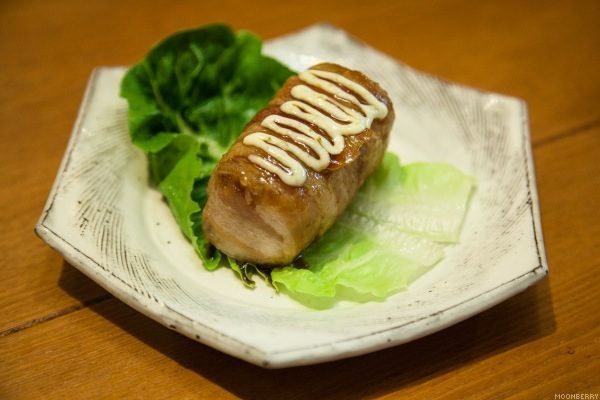
Nikumaki Onigiri (S$3.80/piece) with Yuzu Pepper and Mayo. Bite-sized rice ball wrapped in pork, then baked with a special soy sauce.
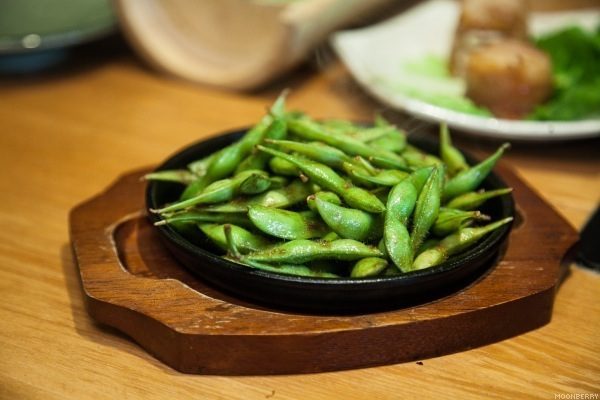
Grilled Edamame.
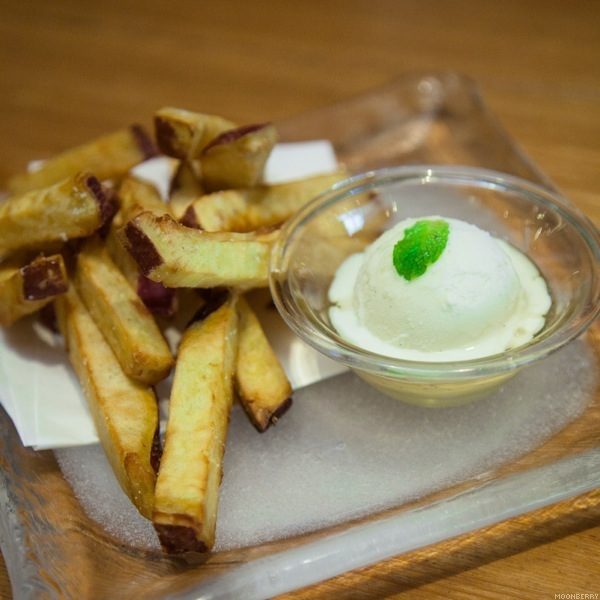
For dessert, Sweet Potato Fries served with Sweet Potato Ice Cream.
Shirokiya
43 & 43A Cuppage Road
Cuppage Terrace
Singapore 229463
Tel: (+65) 6732-8588
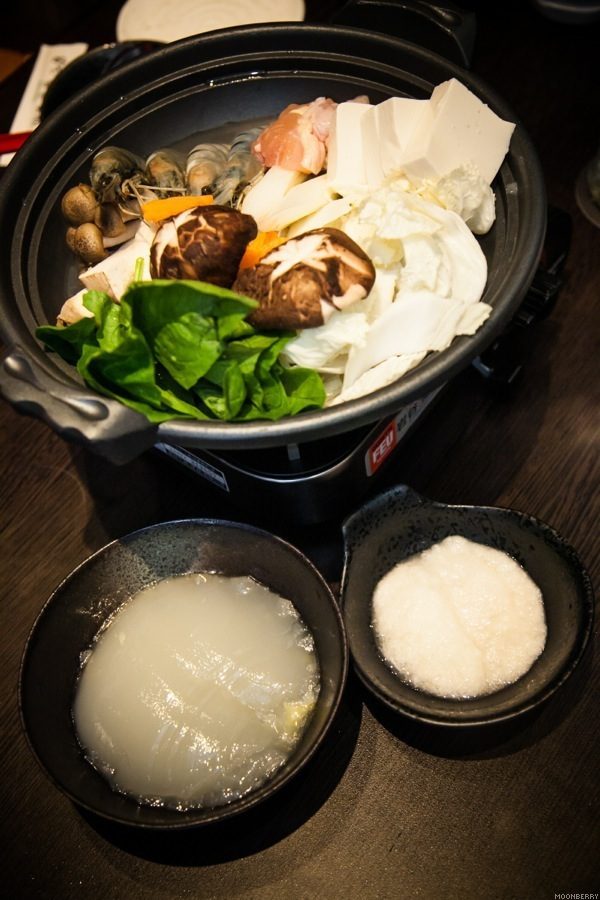
At the izakaya-style Shirokiya, Bishoku Nabe – Collagen Tori Baita collagen hotpot is also served as a set. A S$38.80/set serves 2-3 people heartily and the difference here is that the collagen comes separately from the chicken broth. When the broth begins to boil, collagen and grated mountain yam are then added into the collagen hotpot. The set contains Brunei Organic Blue Prawns, slices of chicken, assorted mushrooms, tofu and vegetables.
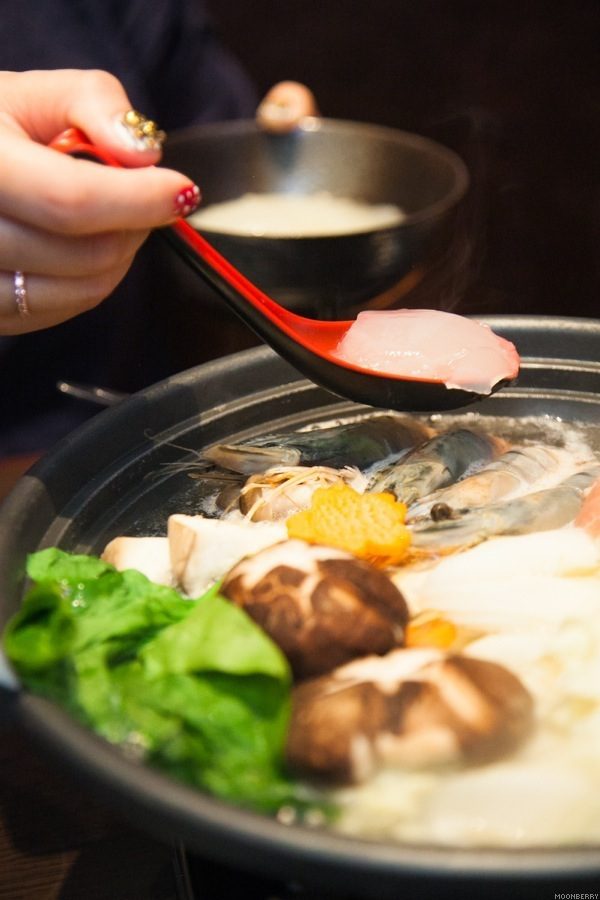
Yummm~ more collagen. Wobbly clear pudding that’s added into boiling broth. Don’t forget to add the grated mountain yam too! Entirely eclipsed by collagen as far as ingredients in this set goes, the grated mountain yam is a binding agent for this soup but it also happens to be one helluva super healthy food item to have. It not only contains anti-aging properties and beautifies skin in its own right, it also boasts other medicinal properties such as tonifying blood, nourishing spleen and kidney, protecting liver, and benefiting women’s reproductive health.
Other dishes at Shirokiya:
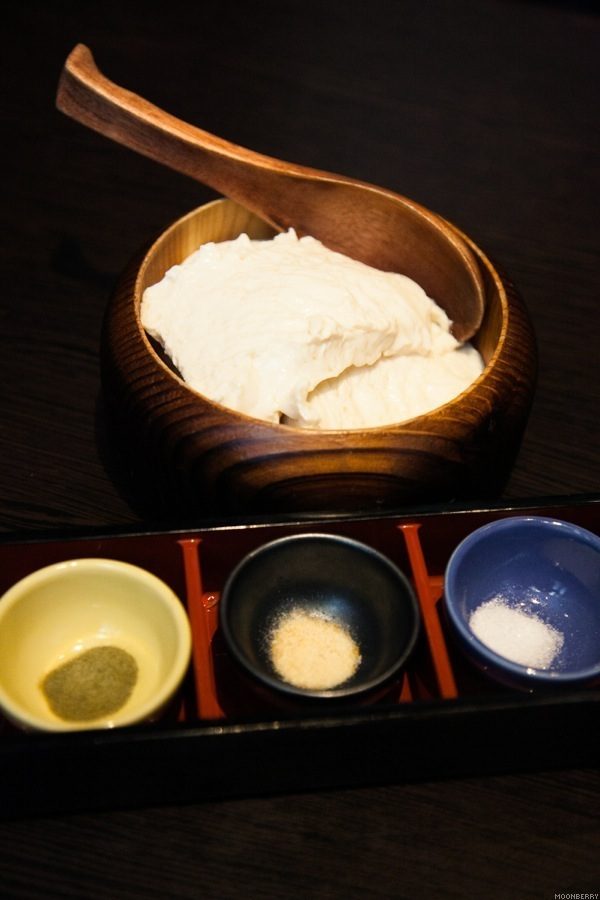
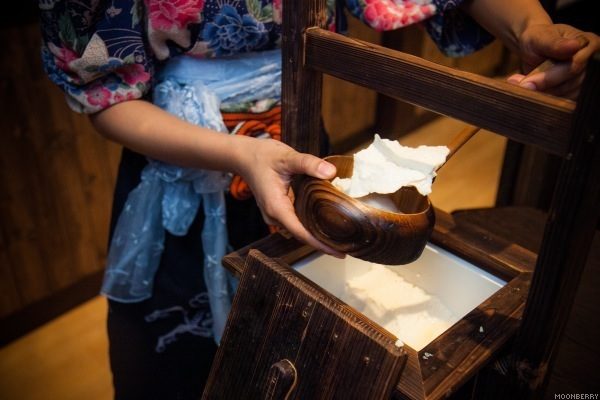
Homemade Dekitate Attaka Toufu (S$7.80) served with three kinds of Shio – sea salt, yuzu and matcha. This tofu is freshly made daily and available only during certain timings, served table-side. Very nice texture and pleasant to be eaten independently even without the salts, imo.
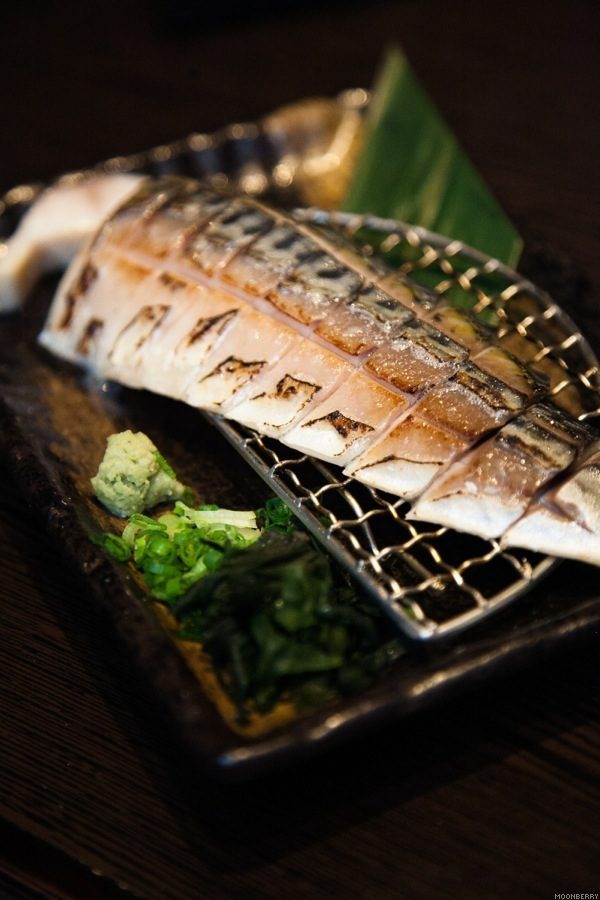
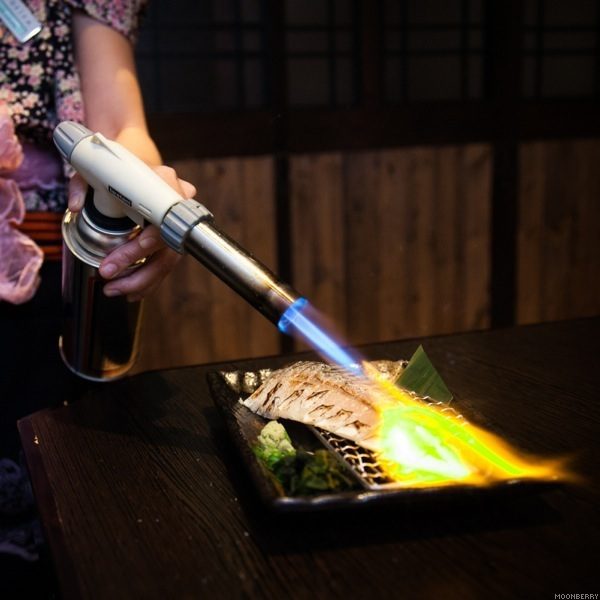
Broiled Pickled Mackerel (S$20.00) scorched table-side with a blowtorch. The mackerel was a burst of flavors and the charred surface gave off a delectable aroma. Highly recommended!
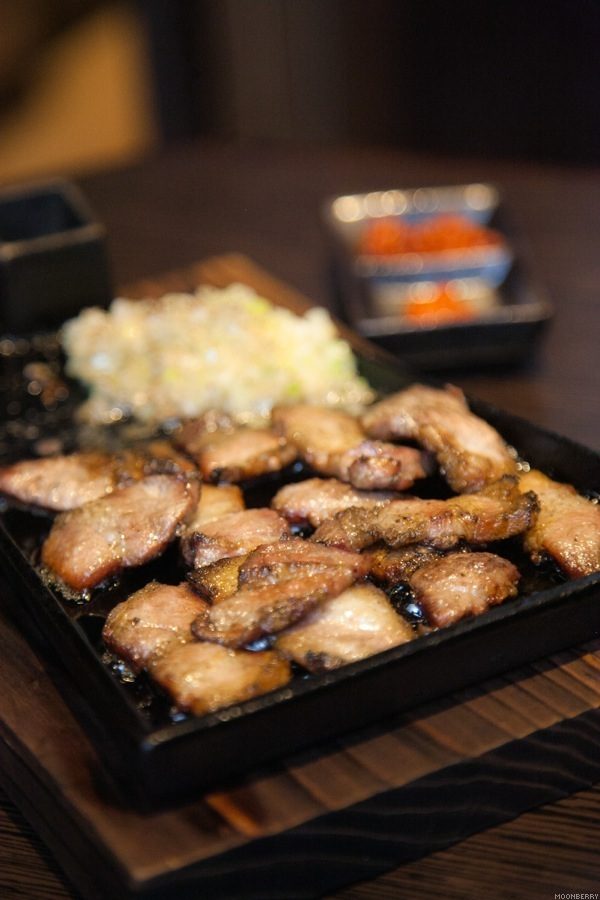
Charcoal Grilled Kurobuta Pork (S$31.80/large, S$23.80/medium). Served on a hot plate with chopped leek and yuzu chili dipping sauce, I’d say feel free to give this a miss as the pork was too dry. I didn’t like it, but was happy to dip other food into the yuzu chili instead.
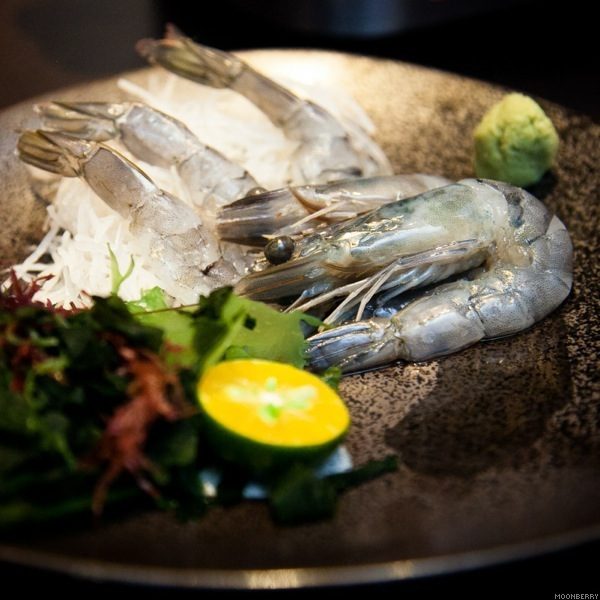
DO NOT MISS this Brunei Organic Blue Prawn Sashimi (S$17.80). These organic prawns are excellent and the sashimi-style truly brought out its succulence and natural sweetness! Farmed in Brunei, they are grown without antibiotics, and are rich in zinc, calcium, phosphorous and amino acids.
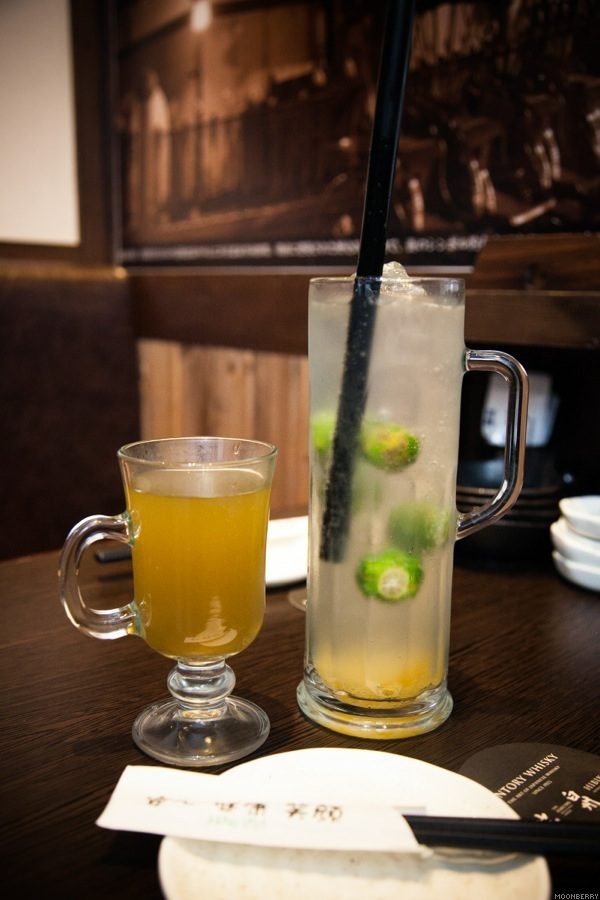
Warm Calamansi Drink and Yuzu Soda (S$6.80/each).
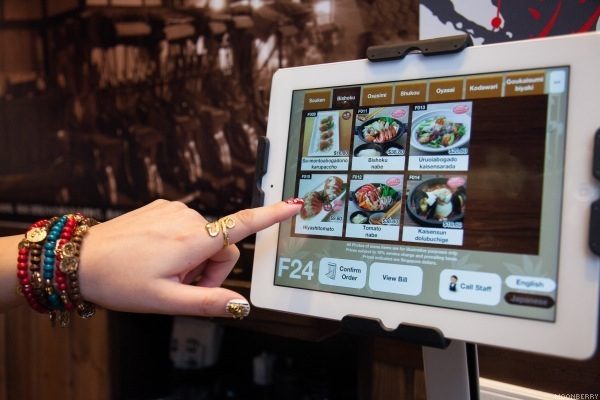
Fancy-schmancy ordering system at Shirokiya where every table is equipped with an iPad menu.
CONCLUSION:
There are clear contrasts, pros and cons in either restaurant where the star attraction – Collagen Hotpot – is concerned, and my vote goes to Shirokiya. I’m going for the collagen broth after all and I enjoyed the milder, more delicate flavor at Shirokiya better. Tsukada Nojo’s broth is way too robust and when most of it boils down, it becomes super salty. At both places, you can get refills of the broth – Shirokiya offers free broth refills, while at Tsukada Nojo the first refill of soup is complimentary and subsequent refills are chargeable (S$3.80/small, S$7.80/large).
Aside from the rubbery chicken, I prefer the set offered at Tsukada Nojo better as I loved the tsukune, the organic vegetables and particularly the watermelon daikon radish. I didn’t care much for the prawns there, and found Brunei Organic Blue Prawns at Shirokiya much more superior. As for the other dishes, I enjoyed the ones at Shirokiya better too, with exception of the Kurobuta Pork.
Now that I’ve tried collagen hotpot, I am so very sorry to inform that after doing some research there is actually no concrete evidence that ingesting collagen will reverse aging. According to scientists, it is misleading to say ingesting collagen will result in smoother skin. That’s because collagen is digested into amino acids just like other proteins, and thus eating meat and other protein-rich foods has the same effect, they say. In other words, eating collagen doesn’t promote anti-ageing anymore than eating other proteins. *coff-gimmick-coff*
GWA GWA GWAAA~
As disappointing as that is, the good news is there’s no harm in eating collagen so whenever there’s an option to add collagen into your hotpot, I say why the hell not. Anti-aging, anti-schmaging… I’m a huge fan of hotpots regardless, so just dump all that collagen in please.
Mountain yam, is of course a different story altogether – it’s a medicinal herb that’s been used for ages by Chinese, Japanese and Koreans. It does the body good and definitely has a lot more health benefits when ingested, compared to collagen. The reality is, touting mountain yam in a soup isn’t as sexy as touting collagen but mountain yam is the true anti-aging and skin-beautifying food. I am thrilled that Shirokiya’s collagen hotpot set has included it, so I have a valid reason to go back there again for this beauty hotpot.
Btw, stay tuned for an upcoming recipe from yours truly that uses mountain yam. :)
※ Update: My recipe here.
Slurps and nomz,
-MB.

